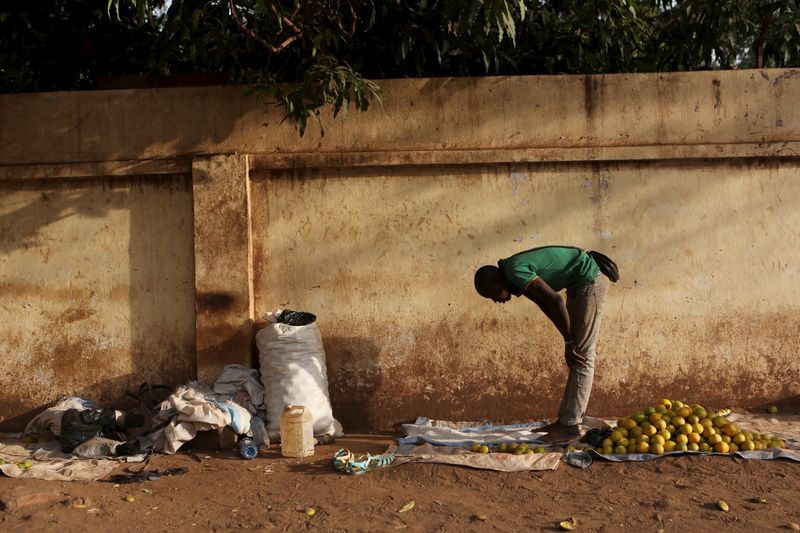Malians suffer economic hardship after four years of military rule
Reuters
Published Aug 18, 2024 04:03AM ET
Updated Aug 18, 2024 09:20AM ET

(Reuters) - Four years after the military ousted Mali’s then-president and came to power, many residents say economic troubles are worsening and constant power cuts are hurting businesses.
The August 2020 coup in the troubled West African nation was set off by public anger with corrupt rulers backed by former colonial power France, a spreading jihadist insurgency and economic hardship. Many are still waiting for life to improve.
"The way they've handled the electricity situation is a problem. Many Malians are experiencing huge losses," Oumar Diarra, a furniture maker, told Reuters. "The government has to make an effort because we are suffering enormously."
The 2020 coup in Mali helped set off a wave of coups in the Sahel region south of the Sahara desert, including in neighbours Burkina Faso and Niger, which are fighting the same jihadist groups linked to al Qaeda and Islamic State.
The current military rulers in Mali, who seized power in a second coup in 2021, have reneged on a promise to hold elections in February, postponing the vote indefinitely for technical reasons.
Allasana Ag Agaly, a silversmith, said power cuts were affecting all households in Mali. “If the head of the family goes out in the morning and comes back at night without being able to work to bring something to his family, it will affect the children, the women and everyday life,” he said.
The World Bank says economic growth in Mali is expected to slow to 3.1% this year from 3.5% last year, with extreme poverty levels rising. About 90% of Mali's population lives in poverty.
Mali’s military leaders, along with those in Niger and Burkina Faso, also kicked out French and U.N. troops that had been involved in fighting Islamist insurgents for a decade, and turned to Russia for help instead.

Some residents say they remain hopeful, and view the current hardship as the price for greater independence from France.
“Political independence without economic independence is meaningless,” said Alkady Haidara, a resident in the capital Bamako. “I just want Malians to be patient, because it's part of life. You have to go through a difficult time to have a brighter moment.”
Written By: Reuters
Trading in financial instruments and/or cryptocurrencies involves high risks including the risk of losing some, or all, of your investment amount, and may not be suitable for all investors. Prices of cryptocurrencies are extremely volatile and may be affected by external factors such as financial, regulatory or political events. Trading on margin increases the financial risks.
Before deciding to trade in financial instrument or cryptocurrencies you should be fully informed of the risks and costs associated with trading the financial markets, carefully consider your investment objectives, level of experience, and risk appetite, and seek professional advice where needed.
Fusion Media would like to remind you that the data contained in this website is not necessarily real-time nor accurate. The data and prices on the website are not necessarily provided by any market or exchange, but may be provided by market makers, and so prices may not be accurate and may differ from the actual price at any given market, meaning prices are indicative and not appropriate for trading purposes. Fusion Media and any provider of the data contained in this website will not accept liability for any loss or damage as a result of your trading, or your reliance on the information contained within this website.
It is prohibited to use, store, reproduce, display, modify, transmit or distribute the data contained in this website without the explicit prior written permission of Fusion Media and/or the data provider. All intellectual property rights are reserved by the providers and/or the exchange providing the data contained in this website.
Fusion Media may be compensated by the advertisers that appear on the website, based on your interaction with the advertisements or advertisers.